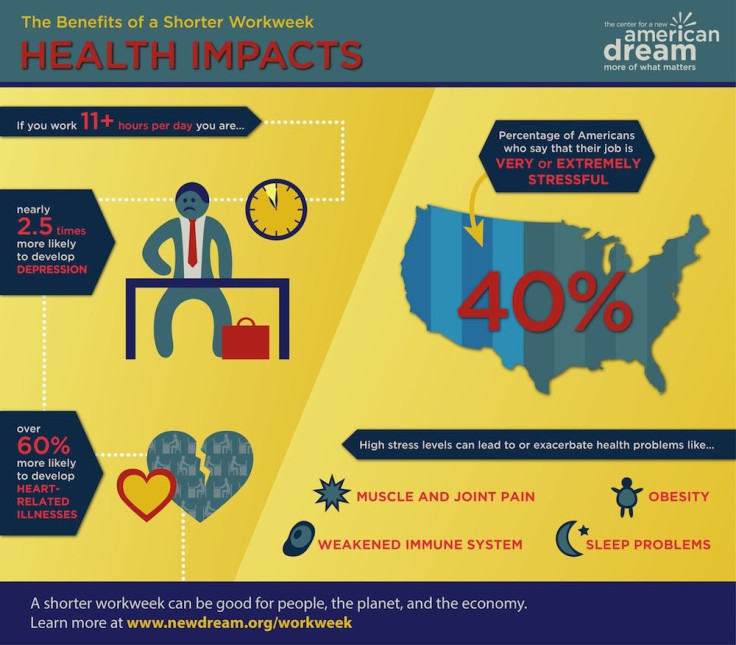Are There Health Benefits To A 4-Day Workweek?

John Maynard Keynes’ 1930 essay, “Economic possibilities for our Grandchildren,” predicted we’d all be living in an era of leisure within the century. Believing technological advancements would equate to a declining amount of human labor, Keynes forecast people working only 15 hours a week, while possessing four to eight times the wealth. Today, we’re nowhere near Keynes’ dream of a 15-hour workweek — and seemingly won’t be able to trim enough hours to be there when 2030 dawns. However, as unlikely as it seems when considering the current standard five-day, 40-hour workweek, we have made significant progress in that direction in a relatively short time.
During the 18th century, Philadelphia carpenters began to express their dissatisfaction with the usual working schedule ranging from sunrise to sunset. Throughout the 19th century, the number of hours worked each day continued to contract though in 1840, the estimated average workweek was still 78 hours per week. This changed during the Great Depression when the U.S. generally reduced hours and workdays in an effort to provide jobs to more people. With the Fair Labor Standards Act of 1938 requiring overtime be paid to any employee who worked more than 40 hours per week, most employers naturally reduced their workers’ week to exactly that length of time and required they work those hours Monday through Friday.
This has remained the status quo schedule to the present day. Yet, we very well may have reached another point of change. Technology has been as radical a force as Keynes imagined, though not quite in the way he dreamed. While the workweek for most employees remains the same as that established during the Great Depression, all manner of flexibility has been instituted, largely among office workers whose key tool is a computer. Increasingly, people cobble together individual schedules during which they might work part of the time at home or shift their office time to an earlier or later hour than the usual 9-to-5.
A favorite innovation is the four-day workweek. As applied by most companies, the week is compressed into four days of 10 hours each, leaving a three-day weekend. Given the option, pretty much any wage slave immediately says, Sign me up.
Many a doctor, including Dr. John Ashton, president of the United Kingdom Faculty of Public Health, has suggested the health problems faced by office workers — obesity, sleep problems, high blood pressure, heart problems, and stress-related illnesses — are linked to too many hours sitting at desks. It may seem a natural leap to say healthier workers would mean fewer illness, but searching for actual studies verifying the positive impact of the four-day workweek on employee health yields not a single research paper or review.
So what are we left with as proof that a four-day workweek would benefit workers’ health? Mere anecdotal evidence, the best of which comes directly from Utah, where, during 2008, the state government experimented with a mandatory four-day working week for its employees. Instead of a five day workweek of eight hours a day, public sector employees worked four days at 10 hours a day in the hopes of saving money for the state. At first, there were many complaints, primarily from businesses which couldn’t gain access to public buildings on Fridays. After six months, the grumbles ended.
Among the statistics gathered, Utah found the total miles travelled in state-owned vehicles dropped by three million, saving the state $1.4 million in the first year. Carbon emissions fell 14 percent and gas consumption was reduced by 744,000 gallons. Though the state did not gather exact data on health benefits of this experiment, both absenteeism and overtime dropped significantly. After a year elapsed, 75 percent of state employees said they preferred the four-day week and more than half believed themselves to be more productive. An overwhelming majority (82 percent) of public-sector employees said they wanted the four-day week to continue after the test year.
While it may be intuitive to think a four-day week would naturally improve the health of workers — if nothing less, they'd be living in a cleaner environment, as Utah's experiment suggests — there is no hard evidence... yet. The perfect reason, then, for employers to begin experimenting with a shorter workweek might be to gather statistical evidence. Certainly, most workers say it's time.




























